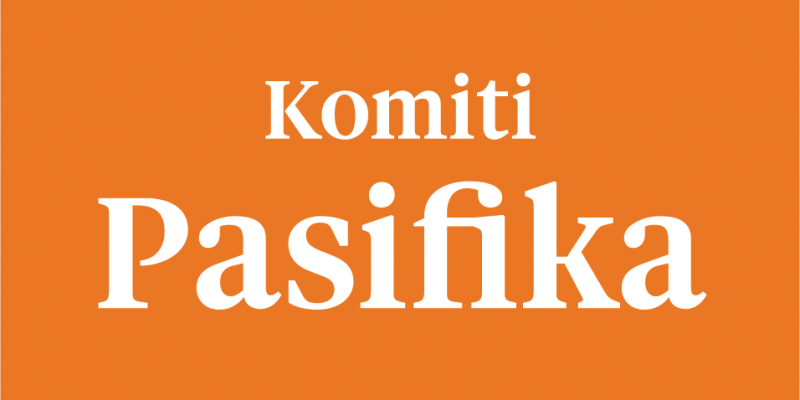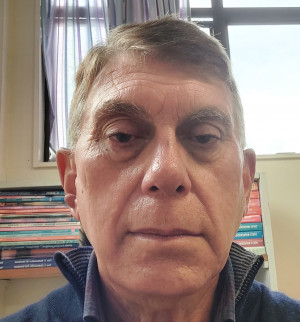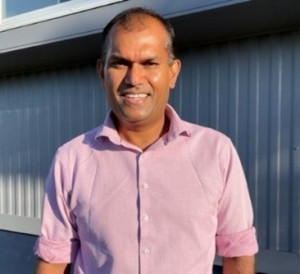
Your Komiti Pasifika
PPTA News introduces some more members of Komiti Pasifika, the PPTA network that represents Pasifika teachers and students and promotes policies and programmes to address their professional, industrial and cultural concerns and issues
Vernon Tile Vamaua
My unionist and Samoan background plus the important concept of fa’asamoa or service to the Samoan community inspired me to become a member of PPTA Komiti Pasifika when it was approved as a PPTA network from 1990 onwards. Since then, I have been involved with Komiti Pasifika at the branch, regional and national levels. As a Komiti Pasifika member, I have enjoyed working and connecting with other Pasifika teachers whether it is discussing common issues we face as Pasifika teachers, our concerns with Pasifika student underachievement, or organising ourselves as Pasifika teachers within PPTA.
A voice for Pasifika teachers
In my view, Komiti Pasifika’s main achievement has been its continued development as a major network within PPTA raising and discussing national, professional and Pasifika issues in relation to teaching and learning amongst PPTA Pasifika members themselves and the wider PPTA membership. Union wise, it has become a voice for PPTA Pasifika teachers within PPTA at all levels of the union. At a social collegial level, it is a friendly supportive forum for connecting busy Pasifika teachers.
Challenges ahead
A major challenge for Komiti Pasifika regarding Pasifika student achievement is developing our own models and understanding of what is needed for and from our Pasifika communities to stand tall once again and to use the New Zealand education system to advance Pasifika student educational opportunities. There is too much focus on middle class liberal identity politics for improving Pasifika educational achievement and not enough recognition and development from a class perspective for improving Pasifika student achievement.
Over the next few years, Komiti Pasifika needs to work within PPTA to come up with measures that will keep Pasifika teachers in the profession nationally and encourage them to stay as teachers and not move out of the profession as they are head hunted by government department and outside organisations. Another major challenge for Pasifika teachers, and hence Komiti Pasifika, is getting the balance right between working as the liaison between their schools and their Pasifika communities and doing their overall job as a teacher. The liaison work, effort and time between the school and the Pasifika communities needs to be recognised and addressed in the provision of time - less timetabled teaching contact hours - and money - management units and allowances.
Alvin Chand
Tēnā tātou katoa Greetings to you all
Ko Bulabula te Maunga
Ko Ba te Awa
Ko Alvin Chand tōku ingoa.
Nō reira, tēnā koutou, tēnā koutou, tēnā tātou katoa
My whakapapa can be traced back to India. I am a fourth-generation Fijian Indian, born and raised in Fiji. I hail from a small town in Fiji called Ba, where my parents had a small sugarcane farm of about ten acres.
My ancestors were brought to Fiji through the indentured labour system to work on sugarcane fields in the late 1800s by the British Government. My family and I now reside in Aotearoa, New Zealand. It is estimated that there are 90,000 Fijian Indians living in New Zealand.
Desire for more Pasifika students to succeed
My service and contributions have been towards high school science teaching and leadership in the Auckland and Waikato regions for the last 17 years.
My desire for more Pasifika students to succeed in education inspired me to join the Komiti Pasifika and undertake PhD studies from the University of Waikato. My research aims to discover barriers and enablers for Fijian students (iTaukei and Fijian Indians) to get engaged in science learning. It is envisaged that this study can contribute to teachers' professional development in schools, add additional value to the current literature, and help administrators make an informed decision when it comes to making policies.
Celebration of diversity
Komiti Pasifika is an important branch of PPTA that can provide specific advice concerning Pasifika students. One of the major achievementcs of the committee in recent years is the celebration of diversity within the Pasifika community. Pasifika students come from many small island states such as Samoa, Cook Island, Tonga, Tokelau, Fiji, Kiribati, Nauru, Papua New, Rotuma, Tahiti, Solomon Islands and Tuvalu. They have unique identities, values, and belief systems and are not homogenous. We need more young Pasifika teachers to join the education sector so they can act as role models for our students.
